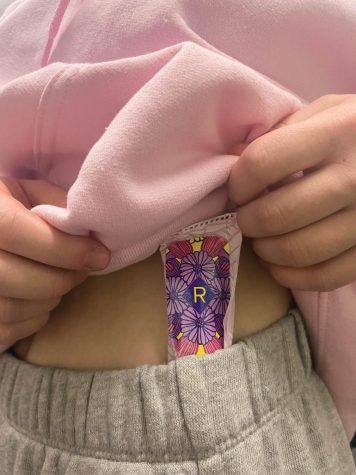Old Friends You’re Not Friends with Anymore
November 5, 2021
Sophomore Ivy remembers waking up extra early every morning just to meet her then-best friend at school in hopes of getting her attention, even though the effort was never reciprocated. How many more mornings would she have to spend putting in all her effort just to be able to maintain a one-sided friendship?
As her energy ran low and exhaustion set in, she realized, “It just doesn’t work.”
Navigating friendships can be confusing and painful. So many things can go wrong. Many people know what to look out for in toxic friendships, but some red flags are not always so evident.
“Like hiding jealousy within jokes and having to give too many second chances,” sophomore Luke Jones said.
Throughout their middle and high school experiences, students noticed that fading friendships was a trend.
“I thought I would spend my future with them, because we always were best friends,” Ivy said. “It felt like an effortless and great friendship.”
Self-discovery and comfort in who she was brought her the confidence to break off the relationship slowly. No one is fully comfortable or ready for a big change, but Ivy said she knew it had to be done.
“Having other friends was one of the things that pushed us away from each other.” Ivy said.
After drama with Ivy’s friend group, she knew she had to go to one of her “closest friends” for their insight. She was looking to be comforted but quite literally received the opposite, which led Ivy to reach her breaking point and fade away.
“A loss of interest and growing up were other factors in a fading friendship,” says junior Donovan Allen.
Growing apart naturally with age is completely normal and healthy, and it usually ends with closure and the friends being on good terms.
“I had to convince myself to see them, and I was only still friends because they thought we were,” Allen said.
Being trapped in a friendship is unbearable at times.
“Feeling like you have no space for your feelings when you’re with them,” community mentor Jill Broussard said, is an apparent toxic trait. “Changing your behavior to avoid fights or silent treatment, punishment and verbal abuse or gossip instead of open communication.”
Comfortability and honesty are some of the most important characteristics to maintain a healthy friendship. But, a trend we’ve found in noxious friendships is having to put yourself in a bubble.
“Feeling like you constantly have to filter your true self around them” sophomore Bunny Bullock said is one of their red flags.
“Racism,” is sophomore Brysen Davis’s major deal-breaker, which he said has previously led to confrontation in one of his friendships.
Confrontation– either directly or indirectly – is one of the toughest things someone can go through. For people with anxiety, especially, standing up for themselves and their wellbeing can be seen as impossible.
So you stand up for yourself, and what happens next? Gaslighting.
“It’s invalidating your feelings,” sophomore Serena Chou said.
Then, if you’re lucky, we are presented with closure – closing this chapter of your life and putting it back on the shelf. This could take years or just a simple conversation.
“So when I see her, I feel closure,” said Ivy. “We’re both growing our separate ways, and it’s okay.”

Melissa Pond • Nov 5, 2021 at 10:45 am
Really thoughtful article. Thank you for your research and insight. There are billions of people in the world one can be friends with, literally… friendship should be uplifting and all about being for each other, and easily so. If one is filled with stress, drama, and/or jealousy, letting go and moving on is the healthiest option. What’s helped me release toxic friendships, is when I think back on them, to remember the good times and be thankful we were there for each other when it was healthy, mutual and working. Great job articulating this painful right of passage into emotional intelligence.